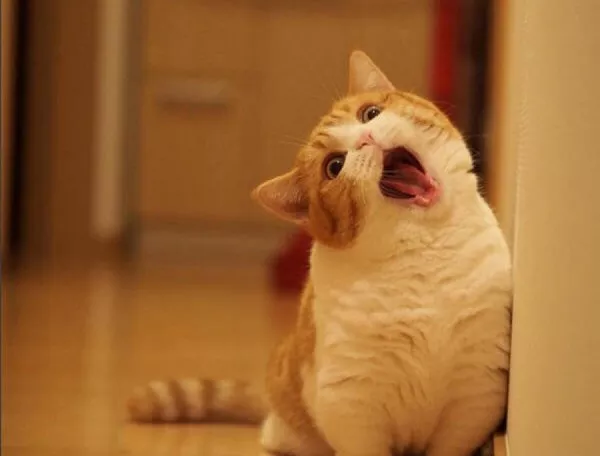Can a 2-week-old kitten pee on its own? This question is a common concern for new cat owners who find themselves caring for a litter of tiny furballs. The early stages of a kitten‘s life are critical, and understanding their developmental milestones, especially in terms of basic bodily functions, is crucial for providing optimal care. In this comprehensive article, we will delve into the intricacies of a 2-week-old kitten’s ability to urinate independently, exploring the factors influencing this process and offering guidance for concerned caretakers.
I. Developmental Milestones in Kittens
Understanding the progression of a kitten’s development is essential to assess whether they can perform basic functions such as urination. At two weeks old, kittens are still in the neonatal stage, characterized by their reliance on maternal care. This period marks the beginning of sensory development, including the opening of their eyes, but it’s crucial to recognize that certain functions, like urination, are not fully developed at this point.
II. The Role of Maternal Stimulation
Unlike some mammals, kittens, especially those in their first few weeks, require maternal stimulation to urinate. The mother cat typically licks the perineal area of her kittens to stimulate the reflex to eliminate waste. This action mimics the mother’s tongue, which is essential for the kitten’s survival in the wild as it promotes cleanliness and triggers the elimination process.
III. Gradual Independence
While 2-week-old kittens are not entirely capable of urinating on their own, there are signs of gradual independence in their bodily functions. Some kittens may begin to show reflexes that mimic the actions of urination, even if they are not fully able to control the process. Caretakers should closely observe these subtle changes as they signal the beginning of the kitten’s journey toward self-sufficiency.
IV. Ensuring Adequate Hydration
Proper hydration is vital for a kitten’s overall health and can impact their ability to urinate effectively. Caretakers must ensure that the mother cat is adequately nourished, as her milk provides essential fluids for the kittens. If hand-rearing the kittens, it’s crucial to choose an appropriate milk replacement formula and monitor the kittens’ hydration levels closely.
V. Creating a Comfortable Environment
The environment in which the kittens are raised plays a pivotal role in their development. A warm and comfortable nesting area, separate from any drafts, provides the ideal setting for a kitten to thrive. Stress and discomfort can impede a kitten’s ability to relax and engage in natural bodily functions, so creating a calm and secure space is essential.
VI. Monitoring Urination Frequency
Observing the frequency of urination in 2-week-old kittens is crucial for gauging their well-being. While they may not be entirely independent in this regard, kittens should exhibit signs of urination multiple times a day. If a kitten is not urinating regularly, or if there are concerns about the color or odor of the urine, it is advisable to seek veterinary attention promptly.
VII. Recognizing Potential Issues
Despite the natural progression towards independence, some kittens may experience developmental delays or health issues that affect their ability to urinate. Caretakers should be vigilant for signs of distress, such as straining to urinate, crying during elimination attempts, or visible discomfort. Any abnormalities should be promptly addressed by a veterinarian to ensure the kitten’s well-being.
VIII. Introducing Litter Training
Around the three to four-week mark, kittens start to gain more control over their bodily functions. This is an opportune time for caretakers to introduce litter training. Placing a shallow litter box in the nesting area and gently guiding the kittens towards it can help them associate the box with elimination. Patience and positive reinforcement are key during this transition period.
IX. Gradual Weaning from Maternal Stimulation
As kittens approach the four-week mark, caretakers may notice a decrease in the mother cat’s involvement in stimulating urination. This is a natural progression as the kittens become more capable of initiating the process on their own. Caretakers can continue to monitor and support the kittens during this transition, providing reassurance and assistance as needed.
X. Celebrating Independence
By the time a kitten reaches six weeks of age, it should exhibit a considerable level of independence in urinating. At this stage, they are typically fully weaned from maternal stimulation, and litter training becomes more effective. Celebrate this milestone as a testament to your nurturing care and the kitten’s successful progression toward self-sufficiency.
See Also:Feeding a 2-Week-Old Kitten: Can They Eat Wet Food?
Conclusion
In answering the question, “Can a 2-week-old kitten pee on its own?” it is clear that, at this early stage, kittens rely heavily on maternal care for their elimination needs. However, with attentive and supportive caretaking, kittens gradually gain independence in urination as they progress through the developmental stages. By understanding the nuances of a kitten’s growth and implementing appropriate measures, caretakers play a crucial role in fostering a healthy and thriving feline companion.
Related Topics:
Can Two-Week-Old Kittens Eat Wet Food?
Nurturing Your 2-Week-Old Kitten: 6 Feeding Tips
Understanding Your 2-Week-Old Kitten’s Poop
























